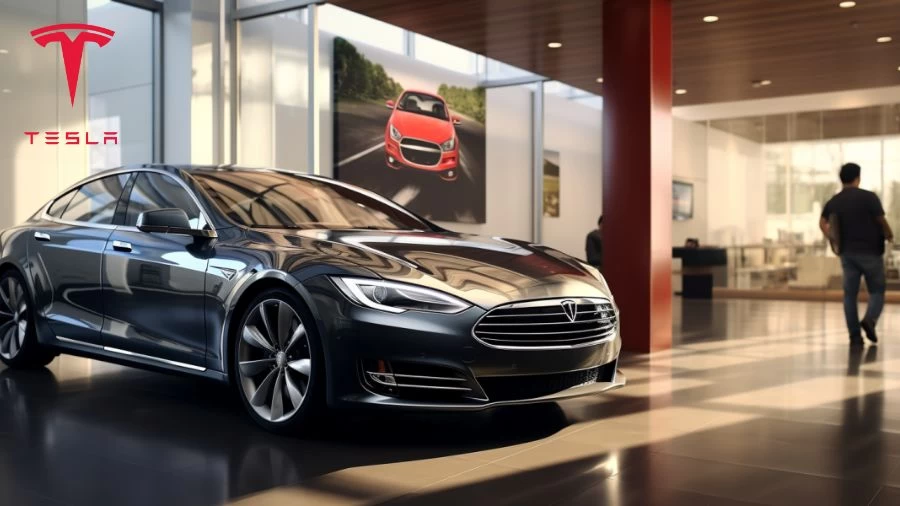
Is Tesla Losing Its Grip on the U.S. Electric Vehicle Market?
Tesla is losing its grip on the U.S. Electric Vehicle market as its market share has declined to 50% in the third quarter of 2023 due to increasing competition from EV startups and established automakers.
by Kowsalya
Published Oct 14, 2023 | Updated Oct 14, 2023 | 📖 4 min read
Is Tesla Losing Its Grip on the U.S. Electric Vehicle Market?
Yes, Tesla is losing its grip on the U.S. Electric Vehicle (EV) market. In the third quarter of 2023, Tesla's market share in the U.S. electric vehicle sector fell to 50%, marking a significant decline from its dominance in 2022 when it held nearly 65% of the market.
Several factors have contributed to this shift. Tesla has responded to increasing competition by reducing prices on some of its popular EV models. This strategy led to a 19.5% increase in vehicle sales during the third quarter compared to the previous year. However, despite this growth, it hasn't been sufficient for Tesla to maintain its market share.
The EV market in the U.S. is expanding rapidly, with a record-breaking 313,000 battery electric vehicles sold in the third quarter. It's projected that the full-year electric vehicle sales in the U.S. will surpass 1 million units for the first time in 2023. This increased demand has attracted numerous competitors, including established automakers like Hyundai, BMW, and Mercedes, as well as emerging EV startups like Rivian Automotive.
Rivian, for example, saw its market share rise to 5% in the third quarter, and it became the fifth-largest EV seller in the U.S., trailing behind Tesla, Ford, Hyundai, and Chevrolet. Legacy automakers like Hyundai and BMW have also seen impressive gains in their market share as their EV sales surged.
Overall, electric vehicle sales represented 7.9% of total U.S. auto industry sales in the third quarter, up from 6.1% in the same period the previous year. With the entry of new competitors and the proliferation of EV models in the market, the number of electric vehicle options available to consumers is expected to double by 2027.
In conclusion, Tesla's share of the U.S. electric vehicle market has declined significantly, and it is facing tough competition from both established automakers and new entrants. The rapid growth of the electric vehicle market in the U.S. has led to a more diversified landscape, and Tesla is no longer the dominant player it once was.
Why Did Tesla's Market Share Decline in the U.S. EV Sector?
Tesla's market share in the U.S. electric vehicle (EV) sector declined for several key reasons:
- Increased Competition: The rise of new competitors, including EV startups and established automakers like Hyundai, BMW, and Mercedes, has led to a more crowded EV market. These companies have released their own electric models, which have gained market share at the expense of Tesla.
- Price Cuts: To attract more customers, Tesla reduced prices on popular models. While this strategy resulted in a 19.5% increase in vehicle sales in the third quarter, it was not sufficient to maintain its market share, as the competition continued to grow.
- Record EV Sales: The overall growth of the electric vehicle market in the U.S. has been remarkable. In the third quarter, a record 313,000 battery electric vehicles were sold, marking a 50% increase from the previous year. The expectation that full-year electric sales will surpass 1 million for the first time in 2023 highlights the growing demand for EVs in the market.
- Legacy Automakers' Success: Some traditional automakers that have ventured into the EV market, such as Hyundai, BMW, and Mercedes, saw significant gains in market share. Their EV sales tripled or nearly quadrupled, indicating a strong response from consumers to their electric offerings.
- Market Proliferation: With new competitors entering the market and a proliferation of EV models, consumers have more options. Cox Automotive predicts that the number of EV products available to consumers will double by 2027. This expanded choice has further intensified competition and impacted Tesla's market share.
Journey into the heart of commerce through MarketsHost. Explore the latest market developments, Business models, and industry insights, and embark on a path to sustainable success.
Tesla
Tesla, Inc. is an American multinational company headquartered in Austin, Texas, known for its pioneering role in the electric vehicle (EV) and clean energy industries. Founded in 2003, it was initially named Tesla Motors and was dedicated to producing electric vehicles that promote sustainability. Under the leadership of CEO Elon Musk, Tesla has become one of the world's most valuable companies and the most valuable automaker globally as of 2023.
The company has developed a range of electric vehicles, including the popular Model S, Model 3, Model X, Model Y, and the innovative Tesla Semi truck. In addition to EVs, Tesla manufactures stationary battery energy storage devices, solar panels, and solar shingles, contributing to its mission of accelerating the world's transition to sustainable energy.
Tesla's impact on the automotive and clean energy sectors has been significant, with its electric vehicles leading the battery electric vehicle market, and its products and services shaping the future of sustainable transportation and energy solutions.
Is Tesla Losing Its Grip on the U.S. Electric Vehicle Market - FAQs
1. Is Tesla Losing Its Grip on the U.S. Electric Vehicle Market?
Yes, Tesla is losing its grip on the U.S. Electric Vehicle (EV) market.
2. Why has Tesla's market share in the U.S. electric vehicle market decreased in recent quarters?
Tesla's market share has declined due to the increasing competition from both established automakers and emerging EV startups.
3. What strategies has Tesla employed to maintain its market share in the face of growing competition?
Tesla has reduced prices on some of its popular EV models in an effort to attract more customers and boost sales.
4. How does the overall growth of the electric vehicle market in the U.S. impact Tesla's market share?
The rapid expansion of the electric vehicle market in the U.S., with record sales and a projected full-year sales figure of over 1 million units, has attracted more players, intensifying competition and affecting Tesla's market share.
5. Which competitors have gained market share at Tesla's expense in the U.S. electric vehicle market?
Both traditional automakers like Hyundai, BMW, and Mercedes, as well as newer entrants like Rivian Automotive, have made significant gains in market share, eroding Tesla's dominance.




